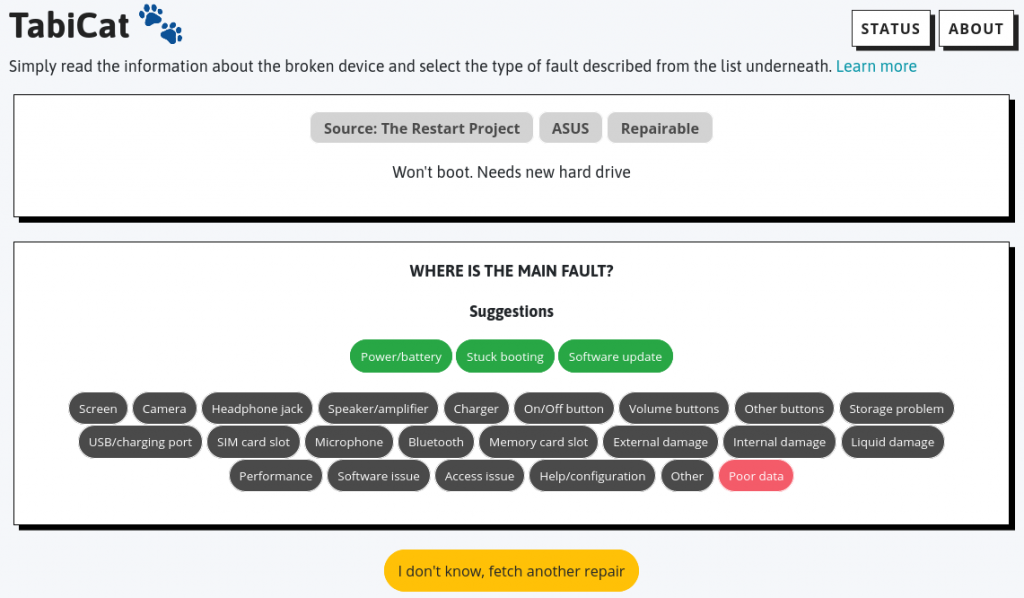The Open Repair Data Standard helps us collect, share and compare data from community repair events around the world. While in the last few months almost no events took place, it’s a perfect time to analyse existing data and learn from it.
By analysing the data, we can learn more about the devices – including insights to help push Right to Repair regulation in Europe and beyond.
Our member The Restart Project is today launching “TabiCat”, an opportunity to collaboratively analyse data on fault types for over 900 tablets brought to Repair Cafes, Fixit Clinics and Restart Parties around the world.
How you can get involved

Head over to TabiCat and join the investigation. You’ll be presented with information about a broken tablet and you’ll be able to select the most appropriate fault from a comprehensive list. Once you’ve selected an option, you’ll be presented with information on another tablet. The more tablet faults you can categorise, the more we learn! TabiCat shows each tablet to up to three people to help confirm the right fault category. If you want to learn more and provide feedback on your experience with TabiCat, you can join a conversation about it here.
Why are we focusing on tablets?
There’s no regulation on tablets’ repairability anywhere in the world. The EU is working on ecodesign measures to apply to both smartphones and tablets, and this is a great opportunity to bring the perspective of real people attempting to repair devices at community repair events.
The draft regulation we have seen doesn’t include access to most spare parts or repair information for community repair initiatives as well as consumers. And we know that manufacturers will do all they can to further reduce requirements to make spare parts available at all.
What we hope to achieve
By analysing our data on tablets, we can make the case for long-term support for tablets – including availability of spare parts. This is why we need your help now: our insights can help explain that plenty of people would like to keep their existing devices working for longer, and repair them when needed.
In July, we plan to submit our evidence to the ongoing public consultation on smartphones and tablets recently launched by the European Commission, so please help us complete TabiCat by the end of June.
Once you’ve helped with TabiCat, if you’re curious about more of our work in this area, you can still help us complete our work on printers with PrintCat.